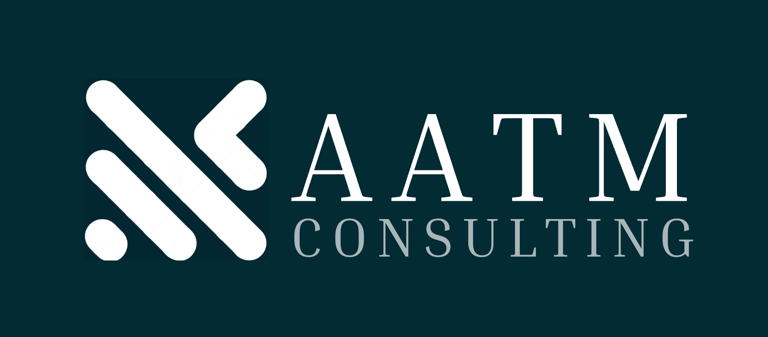The benefits of integrating UX Research in Responsible AI
Unlock the power of responsible AI by integrating UX Research to develop user-centered, transparent, and ethically sound AI systems that prioritize compliance, trust, and accountability. Our comprehensive services, including legal compliance audits, ethical AI audits, framework development, privacy protection, and risk assessment, will guide your organization toward responsible AI practices that benefit both users and society.


Introduction
In the era of AI, responsible and ethical use of technology has become increasingly critical. As AI systems become more pervasive in our daily lives, it is essential to ensure that these systems are designed with the well-being of both end users and organizations in mind. User Experience (UX) research plays a vital role in this context, as it provides valuable insights to develop AI solutions that are not only user-friendly but also aligned with ethical and responsible practices.
What is Responsible AI?
Responsible AI refers to the development and deployment of AI systems that adhere to ethical principles, legal requirements, and societal norms. It encompasses various aspects, including transparency, fairness, accountability, privacy, and security. With the growing awareness and concerns around AI bias, algorithmic discrimination, and data privacy, organizations are recognizing the need to prioritize responsible AI practices.
Outside of just the legal requirements, companies should consider their customer values to attract and distinguish themselves from others.
How Gen Z is now prioritizing sustainable and ethical products over cheaper alternatives that lack such aspects.
VALUES OF THE COMPANY
The Importance of UXR in Responsible AI
User Experience Research (UXR) acts as a bridge between AI technology and human interactions. By applying rigorous research methods, such as user interviews, usability testing, and surveys, UXR provides invaluable insights into users' needs, behaviors, and expectations. When integrated with responsible AI practices, UXR can significantly enhance the development and deployment of AI systems.
Compliance to law and ISO standards:
Ethical considerations: UXR helps identify potential biases, discriminatory patterns, and unintended consequences in AI systems. By involving diverse user groups and conducting thorough usability testing, organizations can uncover and address ethical concerns before deploying AI solutions to the wider public.
Trust and transparency: UXR facilitates the development of transparent AI systems by involving users in the decision-making process. By providing clear explanations of how AI algorithms work and seeking user feedback, organizations can foster trust and mitigate concerns around algorithmic opacity.
UX Benefits in Responsible AI
Integrating UXR with Responsible AI brings a range of benefits to both end users and organizations. Let's explore some specific examples:
Enhanced Transparency and Accountability
Mitigation of Bias and Discrimination:
Ethical Decision-Making:
Responsible AI requires ethical decision-making frameworks that guide the development and deployment of AI systems. UXR can inform the development of ethical guidelines by incorporating user perspectives and ethical considerations into the decision-making process. This helps align AI solutions with organizational and societal values and norms.
How We Can Help
We offer a range of services to help organizations unlock the full potential of responsible AI across their operations.
a. Legal Compliance Audits:
We conduct comprehensive audits to assess an organization's AI systems for compliance with relevant legal frameworks. By identifying potential legal risks and providing actionable recommendations, we ensure that our clients' AI solutions meet legal requirements, mitigating the risk of legal repercussions.
b. Ethical AI Audits:
We conduct comprehensive audits of AI systems to identify potential biases, discriminatory patterns, and ethical concerns. Our audits encompass various dimensions, including fairness, transparency, accountability, and privacy. By identifying ethical concerns and providing practical recommendations, we assist organizations in aligning their AI practices with ethical standards.
c. Ethical Framework Development:
We work closely with organizations in developing ethical frameworks that promote transparency, fairness, privacy, and accountability, tailored to their specific AI initiatives. Through stakeholder engagement, user research, and industry best practices, we help define ethical guidelines and principles that align with organizational values, industry standards, and societal expectations, ensuring responsible AI practices are ingrained in the development process.
d. Privacy and Data Protection:
We provide guidance on privacy and data protection considerations throughout the AI lifecycle. From data collection and storage to user consent mechanisms, we help organizations implement robust privacy practices such as privacy-by-design principles that safeguard user data and comply with relevant data protection regulations.
e. Risk Assessment and Mitigation Strategy:
We conduct comprehensive risk assessments to identify potential ethical and legal risks associated with AI systems, such as bias, discrimination, or unintended consequences. Our team collaborates with organizations to develop effective mitigation strategies, ensuring the responsible and safe use of AI technology.
Conclusions
Integrating UX research with responsible AI practices is crucial to harnessing the full potential of AI while safeguarding the well-being of users and organizations. By leveraging the insights provided by UXR, organizations can develop user-centered, transparent, and ethically sound AI systems. Our UX firm specializes in assisting organizations in their journey towards responsible AI through services such as legal compliance audits, ethical AI audits, ethical framework development, privacy and data protection, and risk assessment and mitigation strategy.
Let us help you create AI systems that empower users and contribute positively to society.
